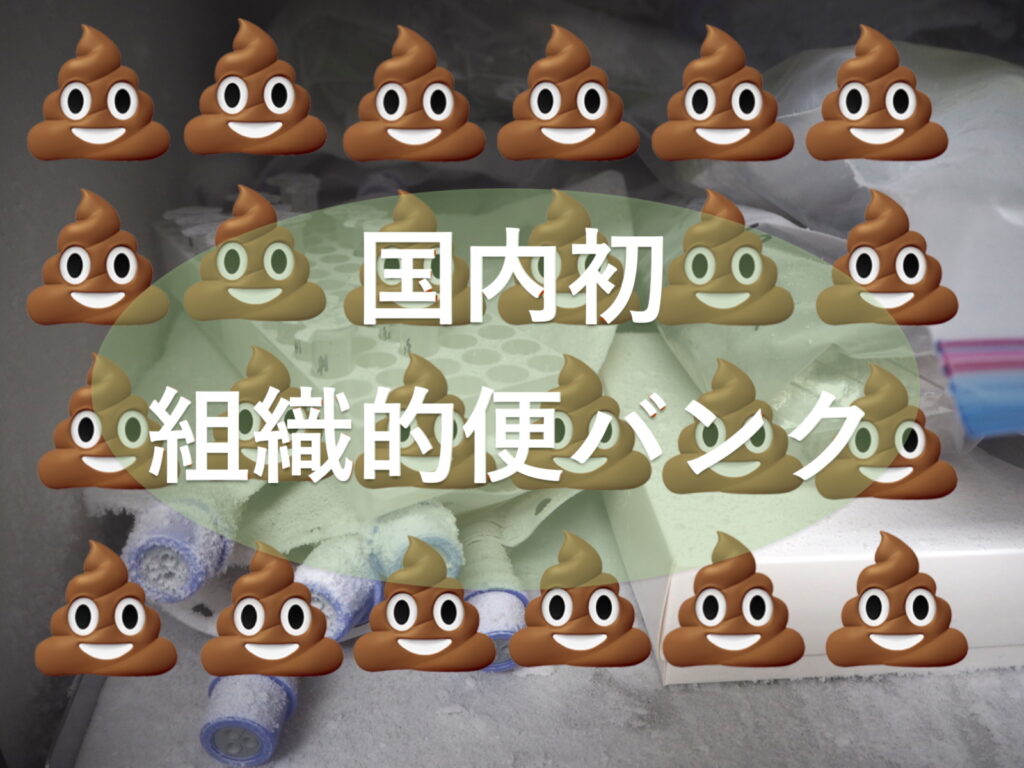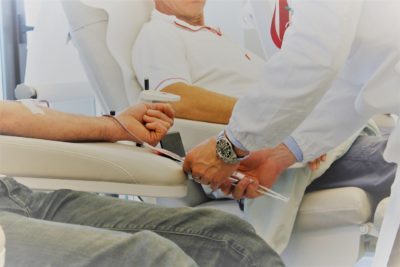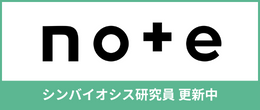
The first organized stool bank in Japan is born.

It is common practice in the world to receive biological samples and organs from others.
Blood, cornea, bone marrow, heart, lungs, liver, kidneys.
It can be said that human cells and body fluids are constantly being replaced, that the constituent molecules are the same, and that at the elemental level, they have been used since time immemorial.
In recent years, “stool” has been added to this list.
A stool transplant is just that.
Furthermore, there is not much of a physical or time burden on either the donor or the patient.
However, many people are resistant to stool transplants.
Basically, information about the donor is never given to the patient, for example, in organ transplantation.
However, intestinal flora transplantation (stool transplantation) is a new method and not well known.
It is natural that the patient side would want to know about the donor.
The Intestinal Flora Transplant Clinical Study Group asked permission from the donor to give some of the test results and self-referral information to the patient.
Furthermore, we have decided to make public the process from donor recruitment to transplantation fungal solution.
In addition, the donor bank previously located within Symbiosis Inc. has been spun off as JapanBiome.
Benefits of an organized stool bank

Most clinical trials conducted at university hospitals require that donors be found by themselves within the second degree of kinship.
The reason for this is that “family members are less averse to the procedure and less susceptible to infection.
However, a growing number of places are adopting the stool bank method due to a series of reports that it is better to use third parties who do not have similar lifestyle and genetic information as donors.
Most of them are in the form of donors prepared by hospitals.
This method has the disadvantage that it is expensive to increase the number of donor options.
JapanBiome shares its donor bank with several medical institutions affiliated with the Intestinal Flora Transplant Clinical Research Foundation.
Facilitates the securing of safe donor stools

The definition of “safe donor stool” is still vague, but some guidelines have already been established overseas.
However, following overseas guidelines would require an enormous amount of money and effort, including donor testing, donor management, and stool management.
This may make intestinal flora transplantation not an option for medical institutions.
[su_highlight background=”#fffe99″][su_highlight background=”#fffe99″]JapanBiome conducts more tests than these criteria and carefully selects donors[/su_highlight].[/su_highlight]
Although simple comparisons cannot be made between Japan and the West due to differences in infectious diseases that require attention, [su_highlight background=”#fffe99″]JapanBiome’s donor selection criteria[/su_highlight] may be considered among the [su_highlight background=”#fffe99″]highest in the world.[/su_highlight]
If even one accident occurs, the image of “stool transplantation is dangerous” may be attached before the possibility of stool transplantation is discovered.
For this reason, we aim to provide a safe and secure system for test items, stool management, and safety.
Intestinal flora transplantation in Japan is not yet covered by the Clinical Research Act. (As of June 2019)
In the West, the stance seems to be that if there is no infection, the patient is fine, but even so, more tests are required.
Sharing donors among multiple medical institutions should become the norm in the future, not only from a safety standpoint, but also from an economic, efficient, and stable supply standpoint.
[Reference]
| FMT Protocol *FMT National Guideline Steering Committee (US National Institutes of Health, American Gastroenterological Association) ( external link) European consensus conference on faecal microbiota transplantation in clinical practice practice | Gut *Consensus conference of 28 experts from more than 10 European countries agreed on guidelines for clinical application of FMT ( external link) Clinical Trial Protocol Template US National Institutes of Health, US Food and Drug Administration (external link ) |
Various types of donors can be enrolled.

As mentioned above, one more donor can be very difficult to inspect and manage.
However, some people are now advocating that the concept of FMT (stool transplantation), in which one stool works for all patients, is impossible.
These are people from the Massachusetts Institute of Technology, Harvard University, and Cambridge University.
The Super-Donor Phenomenon in Fecal Microbiota Transplantation
With stool transplants beginning to attract attention, there is a movement to identify the characteristics of super donors.
Abandoning the “One Stool Fits All” Approach
Yes, there is a minimum safety assurance with donor screening, but beyond that, the characteristics vary depending on the target disease.
Can we stop trying to find one stool that works for all?
Based on this, we believe that if the target diseases and target ages are to be expanded, it is better to have a certain number of donor options.
Donor Recruitment

However, more donors is not always better.
More donors means higher costs.
In order to make intestinal flora transplantation a familiar treatment, it would be ideal to have about two people enrolled for each pattern.
The division of patterns and the number of patterns are currently under research, but this can only be done through the sharing of donors.
In addition, Japanese people have a larger volume of stools than Westerners, which allows for the production of a large amount of bacterial solution from a single donor.
*As of August 2019, we are not accepting new donors.
By the way, more information about JapanBiome is available on the Intestinal Flora Transplantation Clinical Study Group website.
It is written in a more serious style, if you would like to read it.
- About Japanbiome (Japan biome)
- From the donor’s tummy to the patient’s tummy
- Donor registration and management
- Donor Screening Items
- Donor stool acceptance and management system I
I would be happy to provide reassurance to those who are considering transplantation in the future.














